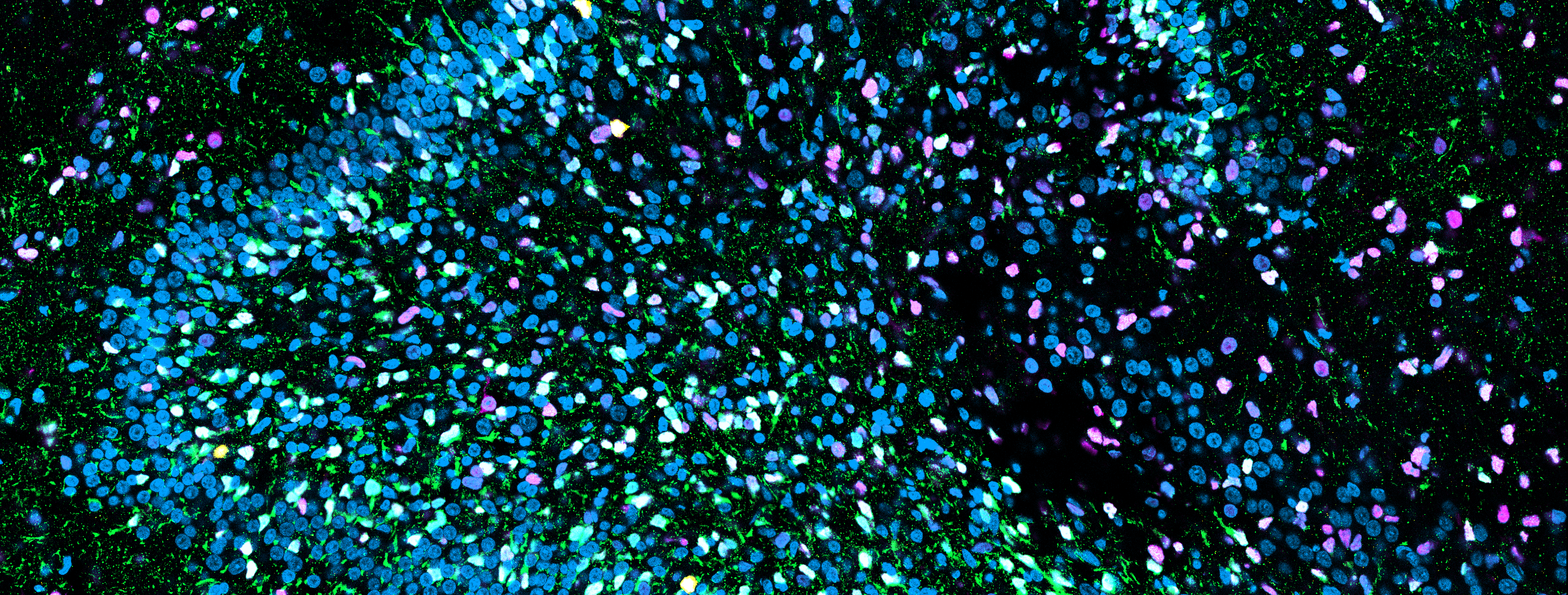Speaker
Description
During brain development, Polycomb group proteins regulate the spatiotemporal expression of neurodevelopmental genes to control cell fate decisions. Polycomb repressive complex 1 (PRC1) is a key regulator of neural development and is frequently deregulated in neurodevelopmental disorders. PRC1 mediates gene repression through both its catalytic activity (H2AK119ub deposition) and non-catalytic functions (chromatin architecture modulation) in neural stem and progenitor cells. Here, we investigate the molecular and developmental consequences of catalytically hypomorphic RING1B (Ring1bI53A/I53A), the core PRC1 subunit. Impaired PRC1 ubiquitin ligase activity leads to a global reduction in H2AK119ub, resulting in the ectopic expression of lineage-inappropriate PcG target genes. This effect is observed during neuroectodermal specification in both in vitro neural progenitor differentiation and ex vivo primary neural stem cells (E10.5), with the emergence of mesendodermal gene expression. Hypomorphic RING1B also causes morphological defects in E12.5 mouse embryos, including a reduction in the size of the telencephalon and a corresponding reduction in the population of SOX2-positive stem cells. Thus, PRC1 ubiquitin ligase activity is essential for maintaining neural progenitor cell identity, and its impairment leads to forebrain developmental abnormalities, including a loss of apical progenitors in the ventricular zone. Next, we aimed to determine whether global loss of H2AK119ub sensitizes cells to mis-activation by lineage-inappropriate transcription factors. Using a TALE-based approach with the transcriptional activator VP64, we have activated master developmental transcription factors in wild-type cells, partially recapitulating the transcriptional and developmental consequences of H2AK119ub loss. These findings suggest that PRC1-mediated H2AK119ub is required to safeguard neural lineage integrity by preventing inappropriate gene activation. Disruptions in this mechanism may contribute to the aetiology of neurodevelopmental disorders, highlighting the importance of epigenetic regulation in early brain development.
| Author(s) | Lucy A. Doyle*, Alexandra Derrien, Dipta Sengupta, Firuze Unlu Bektas, Jennifer Lawson, Ian R. Adams and Robert S. Illingworth |
|---|---|
| Affiliation(s) | Centre for Regenerative Medicine - Institute for Regeneration and Repair, 5 Little France Drive, University of Edinburgh, Edinburgh, EH16 4UU, UK |

